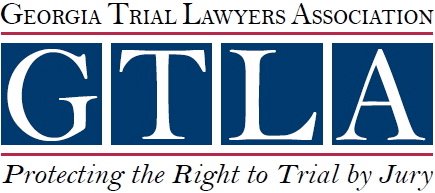When a construction accident occurs in Georgia, the aftermath can be overwhelming. The injured worker may face not only physical pain but also financial strain due to medical bills and lost wages. Navigating the legal process to seek compensation can add an additional layer of stress. Understanding the steps involved in a Georgia construction accident lawsuit can help ease some of that burden and ensure that injured workers receive the compensation they deserve.




Understanding Georgia Construction Accident Lawsuits
Construction accidents in Georgia are governed by a combination of state laws and federal regulations. The legal process typically begins with understanding the types of compensation available, including workers’ compensation and third-party claims. Workers’ compensation is often the first recourse for injured workers, providing benefits such as medical expenses, rehabilitation, and a portion of lost wages. However, there are cases where workers’ compensation may not fully cover the extent of the injuries, particularly if a third party was involved in the accident.
A third-party claim can be pursued if someone other than the employer was responsible for the accident. This could include contractors, equipment manufacturers, or property owners. Filing a third-party claim can provide additional compensation for pain and suffering, emotional distress, and other damages not covered by workers’ compensation. Understanding the distinction between these types of claims is crucial for navigating the legal process in a construction accident lawsuit.
Reporting the Accident
The first step in any construction accident case is to report the incident to your employer. Georgia law requires that the accident be reported as soon as possible, but no later than 30 days after the incident. Failing to report the accident within this time frame can jeopardize your ability to receive workers’ compensation benefits. Reporting the accident also creates an official record, which is essential for any legal action that may follow.
In addition to reporting the accident to your employer, it is important to seek medical attention immediately. Even if your injuries seem minor at first, getting a medical evaluation is essential for documenting the extent of your injuries. Medical records will play a crucial role in your lawsuit, providing evidence of the injuries sustained and their impact on your life.
Filing a Workers’ Compensation Claim
Once the accident has been reported and medical attention has been sought, the next step is to file a workers’ compensation claim. In Georgia, workers’ compensation is a no-fault system, meaning that you do not have to prove that your employer was at fault for the accident. As long as the injury occurred while you were performing your job duties, you are entitled to benefits.
Filing a workers’ compensation claim involves completing the necessary paperwork and submitting it to your employer or their insurance carrier. The insurance company will then investigate the claim and determine whether to approve or deny it. If the claim is approved, you will begin receiving benefits. If it is denied, you have the right to appeal the decision.
The workers’ compensation process can be complex, with strict deadlines and specific requirements for documentation. Having legal representation during this stage can ensure that your claim is filed correctly and that you receive the benefits you are entitled to under Georgia law.
Investigating the Accident
If you decide to pursue a third-party claim in addition to your workers’ compensation benefits, the next step is to investigate the accident thoroughly. This investigation will involve gathering evidence to establish who was at fault and to what extent. Evidence may include photographs of the accident scene, witness statements, safety inspection reports, and testimony.
During the investigation, it is important to preserve any evidence related to the accident. This includes keeping copies of all medical records, accident reports, and communication with your employer or insurance company. Your attorney will work closely with you to collect and organize this evidence to build a strong case.
Investigating a construction accident can be time-consuming and requires a deep understanding of construction practices, safety regulations, and legal standards. An attorney with experience in Georgia construction accident cases will know what to look for and how to use the evidence to support your claim.
Filing a Third-Party Lawsuit
After the investigation is complete and sufficient evidence has been gathered, the next step is to file a third-party lawsuit if applicable. The lawsuit will be filed in the appropriate Georgia court and will outline the details of the accident, the injuries sustained, and the compensation being sought.
Filing a lawsuit is a formal process that requires adherence to specific legal procedures. Your attorney will draft and file the necessary documents, including the complaint, which initiates the lawsuit. The defendant (the party being sued) will then have the opportunity to respond to the complaint, either by admitting fault, denying the allegations, or filing a counterclaim.
Once the lawsuit is filed, the discovery phase begins. During discovery, both parties exchange information and evidence related to the case. This phase may involve depositions, interrogatories, and requests for documents. Discovery is a critical part of the legal process, as it allows both sides to fully understand the facts of the case and prepare for trial.
Hiring a Personal Injury Attorney How Long Will a Personal Injury Case Take?Related Videos
Negotiating a Settlement
Many construction accident lawsuits in Georgia are resolved through settlement negotiations rather than going to trial. A settlement is an agreement between the parties to resolve the case without the need for a court trial. Settlements can occur at any stage of the lawsuit, from before the trial begins to even during the trial itself.
During settlement negotiations, your attorney will advocate on your behalf to secure the maximum compensation possible. The defendant’s insurance company or legal team will likely attempt to minimize the amount of compensation by arguing that your injuries are not as severe or that you were partially at fault for the accident. Your attorney will counter these arguments with the evidence gathered during the investigation and discovery phases.
Settling a case can be beneficial for both parties, as it avoids the uncertainty and expense of a trial. However, it is important to ensure that the settlement amount fully compensates you for your injuries and any future medical expenses or lost wages. Your attorney will provide guidance on whether to accept a settlement offer or proceed to trial if the offer is insufficient.
Going to Trial
If a settlement cannot be reached, the case will proceed to trial. During the trial, both sides will present their evidence and arguments to a judge or jury. The trial process in Georgia construction accident cases can be lengthy and complex, requiring the presentation of detailed evidence, witness testimony, and analysis.
At trial, your attorney will present your case, including evidence of the defendant’s negligence, the extent of your injuries, and the impact on your life. The defense will have the opportunity to present their case as well, and both sides will have the chance to cross-examine witnesses and challenge the evidence.
The judge or jury will then deliberate and reach a verdict. If the verdict is in your favor, the court will award you damages, which may include compensation for medical expenses, lost wages, pain and suffering, and other damages. If the verdict is not in your favor, you may have the option to appeal the decision.
Collecting the Judgment
If you win your case at trial or reach a settlement, the final step is to collect the judgment. Collecting the judgment involves receiving the compensation awarded by the court or agreed upon in the settlement. In some cases, the defendant may pay the judgment voluntarily. In others, it may be necessary to take additional legal action to enforce the judgment.
Your attorney will assist you in collecting the judgment, whether through direct payment, wage garnishment, or placing a lien on the defendant’s property. Ensuring that you receive the full amount of compensation awarded is a critical part of the legal process.
Navigating the legal process of a Georgia construction accident lawsuit can be challenging and complex. Each step, from reporting the accident to collecting the judgment, requires careful attention to detail and a thorough understanding of Georgia law. While it is possible to pursue a construction accident claim on your own, having legal representation significantly increases your chances of success.
An experienced attorney from Princenthal, May & Wilson, LLC can guide you through each stage of the process, ensuring that your rights are protected and that you receive the compensation you deserve. Whether you are filing a workers’ compensation claim, pursuing a third-party lawsuit, or negotiating a settlement, having a knowledgeable legal team on your side can make all the difference.
If you or a loved one has been injured in a construction accident in Georgia, do not hesitate to seek legal assistance. Princenthal, May & Wilson, LLC offers comprehensive legal services to help you navigate the complexities of construction accident lawsuits. Contact us today to discuss your case and learn more about how we can help you secure the compensation you need to move forward.





